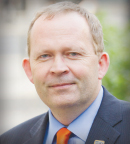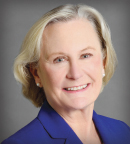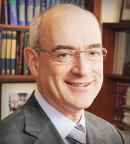After a 4-year in-person hiatus because of the COVID-19 global pandemic, the World Cancer Congress, hosted by the Union for International Cancer Control (UICC), held its first hybrid in-person and virtual meeting in October in Geneva. The conference brought together more than 2,000 attendees from over 120 countries and included 209 rapid-fire poster sessions, 624 study abstracts, and 120 oral presentations.
The theme of this year’s conference was “Committed to Global Collaboration and Knowledge-Sharing to Accelerate Progress in Cancer Control.” The meeting featured session topics ranging from advances in cancer care and measures to reduce tobacco use, including discussions on a generational ban recently implemented in New Zealand (which prohibits individuals born in 2009 and later from buying tobacco products) to the rise of noncommunicable diseases and improving access to cancer medicines in low- and middle-income countries.
There were also some major announcements made during the conference, including the Reimagining Cancer Research in Europe Initiative, which aims to boost novel research in cancer prevention; a first-ever voluntary licensing agreement between Novartis and the UICC’s Access to Oncology Medicines (ATOM) Coalition to produce versions of nilotinib for the treatment of chronic myeloid leukemia in 37 low-income countries; and publication of the UICC’s new report on antimicrobial resistance (AMR) and its impact on cancer care.1 The report AMR Control Supplement: The Challenge for the Cancer Community outlines the growing threat of antimicrobial resistance on cancer care outcomes.

Cary Adams, BSc (Hon), PhD (Hon)
“As a community, we need to understand all of the advances we are making in cancer treatment, and how that care could be undermined by our inability to have effective antibiotics for the infections many patients with cancer will develop when they receive chemotherapy, radiation therapy, or surgery,” said Cary Adams, BSc (Hon), PhD (Hon), Chief Executive Officer of the UICC. “The estimates are that one in five patients undergoing treatment will get an infection and experience resistance to an antibiotic. This is the starting point to sensitize our community to the need to invent a new antibiotic technology.”
Improving Global Access to Quality Cancer Care
This year’s World Cancer Congress was attended by several leaders from ASCO, including Julie R. Gralow, MD, FACP, FASCO, Chief Medical Officer and Executive Vice President of ASCO, who gave the opening plenary address: “Integration of Palliative Care Into Standard Oncology Care: Is It Working?” The presentation focused on the progress made in the field of palliative medicine over the past 50 years and on ASCO’s call, in 2012, for the integration of palliative care into standard oncologic therapy for patients with newly diagnosed metastatic cancer.2

Julie R. Gralow, MD, FACP, FASCO
Dr. Gralow also was the senior author on an abstract titled “Increasing Diversity, Market Access, and Capacity in Oncology Registration Trials—Is Africa the Answer?” The presentation was a summary of perspectives from various key stakeholders on overcoming the impediments to initiating early-stage clinical trials in Africa, including the low priority placed on research by country governments and the lack of understanding among patients about clinical trial procedures and benefits, as well as strategies for developing an action plan to reduce these obstacles.
In August 2022, ASCO and the African Organisation for Research and Training in Cancer (AORTIC) signed a memorandum of understanding to collaborate to advance cancer research in Africa. As part of the memorandum, the two organizations are working to bring ASCO’s International Clinical Research Course to Africa to increase the understanding of clinical trial methodologies and involve young investigators in cancer research.3

Everett E. Vokes, MD, FASCO
A member of the UICC’s ATOM Coalition, ASCO also presented this year a session titled “Improving Access to Essential Cancer Medicines,” moderated by Everett E. Vokes, MD, FASCO, the John E. Ulmann Professor and Chair, Department of Medicine at the University of Chicago, and past President of ASCO. ATOM is tasked with increasing access and availability of cancer medicines on the World Health Organization’s (WHO’s) Essential Medicines List in low- and middle-income countries.
“We totally support ATOM,” said Dr. Gralow. “When we heard the UICC was putting together this coalition, we asked how we could contribute to the effort. ASCO was already doing its own behind-the-scenes work to improve access to cancer medicines. I went to Geneva in May to attend the WHO’s 75th World Health Assembly and help with the launch of ATOM, because I wanted to make a clear statement that ASCO is committed to the success of ATOM. We are a partner with the UICC, and it is a mutually beneficial and rewarding partnership.”
The ASCO Post talked with Dr. Adams and Dr. Gralow about the advances being made to improve cancer care for patients worldwide, the lessons learned from the COVID-19 pandemic, and how palliative care is gaining acceptance around the world.
Shining a Global Light on Cancer
What were the big takeaways for you from this year’s World Cancer Congress?
Dr. Adams: They fell into two groups. The first was the way this year’s Congress was designed. It was a hybrid virtual and in-person event and worked very well. Opening the meeting to people who couldn’t travel to Geneva was a real plus for presenters, because it broadened the number of people who could watch the sessions, whether online or in person.
The second was there were a number of important announcements made during the conference, especially the announcement by ATOM of its agreement with Novartis to license nilotinib to 37 low- and middle-income countries—the first such agreement for a cancer medication. During the meeting, we also added 9 more partners to ATOM and now have a total of 39 partners, up from 26 when ATOM launched in May. I am proud of that accomplishment because all these organizations have committed to work with each other to improve access to medicines all around the world, particularly in low- and middle-income countries.
Also, on a personal note, in April, we established the UICC Solidarity Fund for Ukraine (www.uicc.org/news/uicc-solidarity-fund-ukraine-opens-call-grants-qualifying-organisations), which helps support cancer care for patients and the operational costs of cancer care throughout Ukraine and in surrounding countries. We provided funding for two grantees to come to the World Cancer Congress; to hear their appreciation for providing this support was a personal moment for me. It brought home the important work we are doing with the Solidarity Fund for Ukraine.
Dr. Gralow: For me, the World Cancer Congress is always such a great conference because it is so global. This year, there was a lot of evidence of progress with respect to equity and access to cancer prevention and cancer care. At least there is a strong global commitment to moving the equity piece forward, and it is always refreshing to have uniformity in commitment to an important cause, especially given the partisan politics these days. We all can agree: People should have equal access to cancer prevention, cancer care, supportive care, and palliative care. There is no dissent. And coming together to solve a problem is how we are going to get the best outcomes for patients. It felt good to have such agreement and momentum in this area.
Assessing Progress in the Global Cancer Burden
From the sessions presented, what is the state of the global cancer burden today? What areas are you seeing progress, for example, in improving access to cancer medicines and in better tobacco control?
Dr. Adams: Cancer diagnostics is progressing so quickly that I feel we will make great advances in that area, which will allow us to diagnose cancer earlier, especially in difficult cancers such as pancreatic cancer. We have made advances in our understanding of and in our ability to treat some common cancers more effectively, including breast, cervical, and colorectal, especially in high-income settings. Generally, there has also been good progress in tobacco control, although there is the dark cloud of the popularity of e-cigarettes looming in the background, and that worries me.
On a global level, it has been good to see the commitment countries have made to the WHO’s Global Strategy for the Elimination of Cervical Cancer as a Public Health Problem and to reduce global childhood cancers, as well as breast cancer. We also now have the WHO’s Global Alcohol Action Plan to reduce the harmful use of alcohol by 2030.
We had several roundtable discussions on the impact of the COVID-19 pandemic on cancer services and outcomes worldwide. What we saw in the cancer community is that we adopted new practices, including telemedicine, which have changed the way we interact with patients, and the real benefits the technology is offering to keep patients safe during pandemics while still allowing them to receive care.
Where we have not made any progress is in addressing the global obesity epidemic, and that is a problem. We have not made progress in difficult cancers to diagnosis, such as pancreatic, liver, and lung, and that is worrying, particularly lung cancer, which is the leading cause of cancer death globally.4
We also haven’t made progress in addressing health inequities or in increasing funding assistance for noncommunicable diseases in low- and middle-income countries. Finally, we need countries to invest in the development and maintenance of cancer registries to help them understand their cancer burden and develop policies that could measure and mitigate their impact.
Dr. Gralow: I agree with Dr. Adams. Although we are seeing continued progress in many cancer types in high-income countries, there is still an increasing burden of cancer incidence and mortality in low- and middle-income countries, where patients have not had access to the same early detection, diagnostics, and treatments that are available in high-income countries.
One study on the global estimates of the number of maternal cancer orphans presented by the International Agency for Research on Cancer particularly hit home. The study found that, in 2020, 4.4 million women died of cancer worldwide, mostly in Asia and Africa, leaving 1.04 million new orphans. Most of the deaths occurred from breast cancer.5 These are the statistics that stick in your mind.
You asked about tobacco control. We have been working on reducing tobacco use for a long time, which is among the Sustainable Development Goals of the WHO and the United Nations. We have seen momentum in a reduction in premature deaths from smoking-related cancers both in the United States and in other parts of the world, so that is encouraging.
However, we have seen a drop in human papillomavirus (HPV) vaccinations since the COVID-19 pandemic hit, and there was a lot of discussion at the conference on how to get the HPV vaccination programs back up and running again. There are a lot of barriers to HPV vaccination compliance, and they differ from country to country. The WHO has a global strategy to accelerate the elimination of cervical cancer as a public health problem by 2030,6 which ASCO fully supports.
As Dr. Adams said, there were discussions about what we learned from the COVID-19 pandemic, including the use of telemedicine, how to bring care to patients instead of making them come to the clinic for care or for trials when not necessary, and how we are going to prepare for the next pandemic. This was our first in-person meeting since COVID-19, and the discussion was important.
KEY POINTS
- The 2022 event was held in partnership with three United Nations agencies: the World Health Organization, the International Agency for Research on Cancer, and the International Atomic Energy Agency.
- Nearly 6,700 messages were exchanged on the Congress online platform, and 4,250 contacts were made.
- The full Summary Report from the 2022 event in Geneva is available at https://www.uicc.org/resources/world-cancer-congress-2022-summary-report.
Building Collaborations to Overcome the Barriers to Accessing Cancer Care
ASCO had a big presence at this year’s World Cancer Congress, including presentations titled “Integration of Palliative Care Into Standard Oncology Care: Is It Working?” and “Palliative Care Training During COVID: The ASCO Experience.” Please talk about the importance of collaborations between the UICC and ASCO, as well as with pharmaceutical companies, such as Novartis, to increase the accessibility of cancer medicines in low-resource countries.
Dr. Adams: Dr. Gralow gave a terrific presentation on the barriers to the accessibility of cancer medicines, including the procurement model in a specific country, the financial challenges to procuring and dispensing medicines, how to guarantee the supply chain, the number of the oncology workforce, and what is the ongoing investment in the infrastructure to ensure cancer medicines receive wide distribution. When you have partners such as ASCO, the American Society of Pathology, Project ECHO, and Project HOPE, among others, and bring them together to focus our attention on a specific country to ensure accessibility to cancer medicines, we should be able to put in place the core infrastructure to reduce all the barriers Dr. Gralow talked about.
ASCO plays a critical role in this area because of its ongoing work in the training and education of oncologists in low-resource settings.
Dr. Gralow: To overcome barriers such as cost, you need pharmaceutical partners who are willing to increase the medicine pool with voluntary licensing agreements, such as the one Novartis has with ATOM. However, there are many drugs on the WHO’s Essential Medicines list that are off patent or are biosimilars or generics and are not very expensive to procure, so it is not just an issue of cost. There are myriad problems in getting cancer drugs into the hands of patients.
Once you have the drugs, you must be able to get them across borders, where they can be stuck for months, sometimes expiring before they can get to patients. Counterfeit drugs are a big problem in low-resource countries, so you must have regulatory oversight. You also must have a functioning health-care workforce and a health-care system infrastructure to deliver the drugs. Then, you must make sure the drugs are being given to patients according to evidence-based guidelines and are based on the cancer’s biomarkers, so you also need good pathology laboratories, which many of these countries do not have. Finally, you must monitor and treat patients for therapeutic toxicities. To be successful, all these steps require effort from the key stakeholders, including pharma, government officials, health-care providers, patient advocates, and patients.
Recognizing Palliative Care as an Essential Part of Oncology Care
Dr. Gralow, please talk about the need to recognize palliative care as an essential part of oncology care from diagnosis throughout cancer survivorship and the importance of not conflating palliative care with hospice care. Are you seeing greater utilization and acceptance of palliative care services in low-resource countries?
Although ASCO has been making recommendations and statements about the integration of palliative care into standard oncology care since 1998, we published a strong provisional clinical opinion on the topic about 10 years ago to show that palliative care needs to be seen as an integral part of oncology care and not as a separate standalone service.2 It was also important for ASCO to distinguish the difference between palliative care, which can be given hand in hand with cancer treatment, and hospice care at the end of life. They are very different care services, aimed at patients in different points in their disease trajectory, and the unfortunate perception that palliative care is end-of-life care is preventing many from seeking and accepting these important services.
ASCO recommends offering palliative care early in a diagnosis. This way, we can make sure we are paying attention to patients’ quality of life as much as we are to providing cancer treatment impacting quantity of life.
Is palliative care, especially in low-resource countries, gaining acceptance as an integral part of oncology care?
Dr. Gralow: Yes, I have to say so. I have a lot of experience in Uganda from my prior work as an advisory council member for the Uganda Cancer Institute’s Adult Hematology/Oncology Fellowship Training Program. Uganda has had an effective palliative care program in place for a long time. In that country, there is less fear that palliative care means only end-of-life care.
We could all learn from each other on the best way to provide palliative care, and we should do so. We all want the same thing: We want our patients to live their best lives during and after cancer.
DISCLOSURE: Dr. Adams reported no conflicts of interest. Dr. Gralow is a member of the steering committee and data safety monitoring committee at Roche/Genentech; a member of the data safety monitoring committee and advisory board at AstraZeneca; a member of the advisory board at Puma Biotechnology; a member of the data safety monitoring committee at Novartis; a member of the data safety monitoring board at Immunomedics; and a consultant at Seagen.
REFERENCES
1. Zürn SJ, Johnson S: AMR Control Supplement: The Challenge for the Cancer Community. Available at http://resistancecontrol.info/wp-content/uploads/2022/10/FB.pdf. Accessed December 5, 2022.
2. Smith TJ, Temin S, Alesi ER, et al: American Society of Clinical Oncology provisional clinical opinion: The integration of palliative care into standard oncology care. J Clin Oncol 30:880-887, 2012.
3. ASCO in Action: ASCO and the African Organisation for Research and Training in Cancer Announce Innovative Collaboration to Advance Cancer Research in Africa. August 19, 2022. Available at https://old-prod.asco.org/news-initiatives/policy-news-analysis/asco-and-aortic-sign-mou-clinical-trials-research. Accessed December 5, 2022.
4. Sung H, Ferlay J, Siegel RL, et al: Global cancer statistics 2020: GLOBOCAN estimates of incidence and mortality worldwide for 36 cancers in 185 countries. CA Cancer J Clin 71:209-249, 2021.
5. Guida F, Bray F, Ferlay J, et al: Maternal orphans due to cancer worldwide in 2020. 2022 World Cancer Congress, Geneva, Switzerland. Presented October 19, 2022.
6. CCA for Elimination: Cervical Cancer Elimination: A Global Vision Requiring a Coordinated Effort. Available at https://cervicalcanceraction.org/cervical-cancer-elimination. Accessed December 5, 2022.

